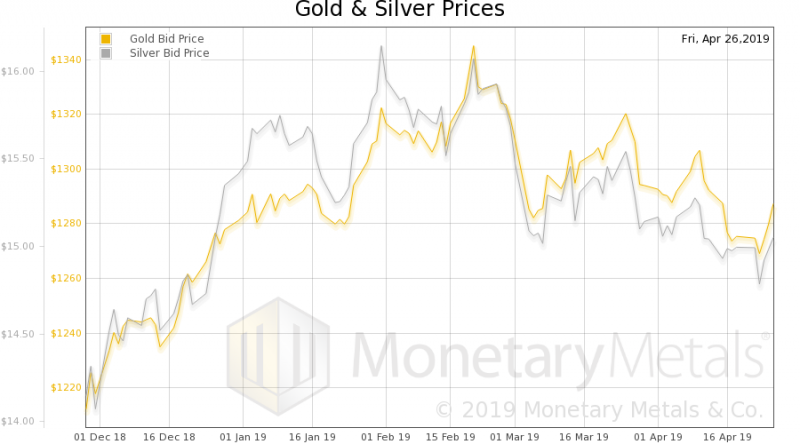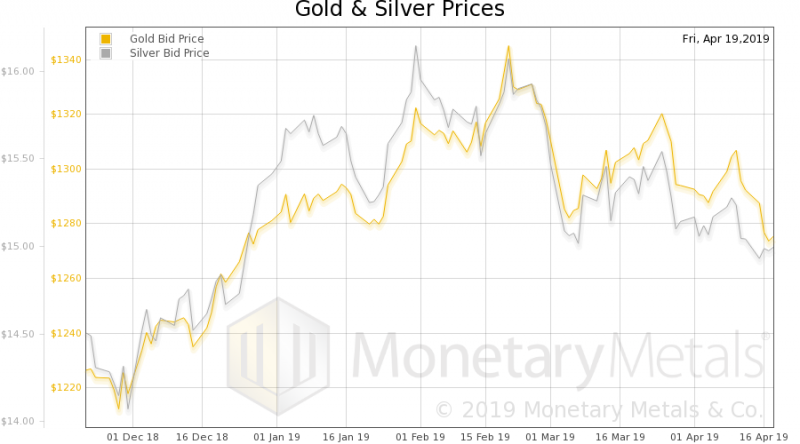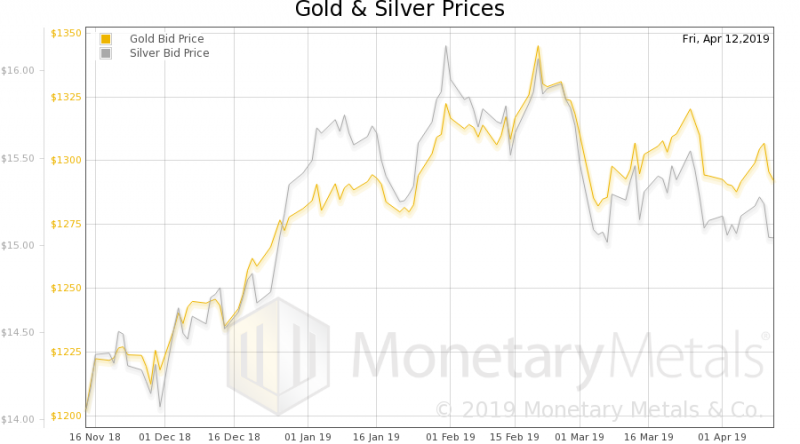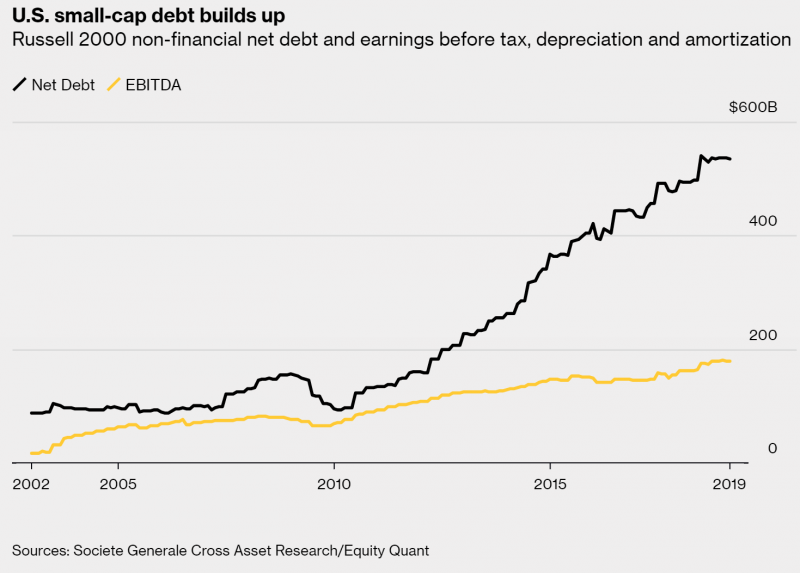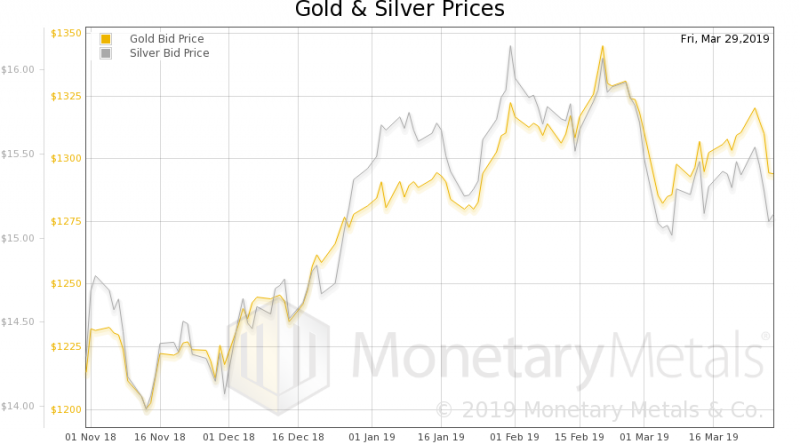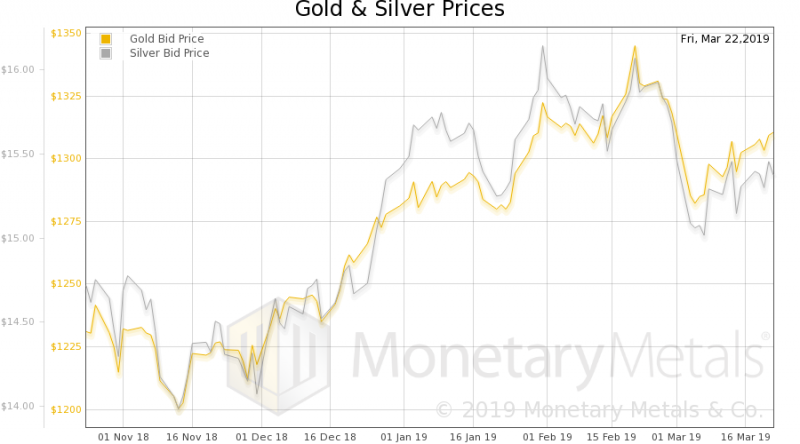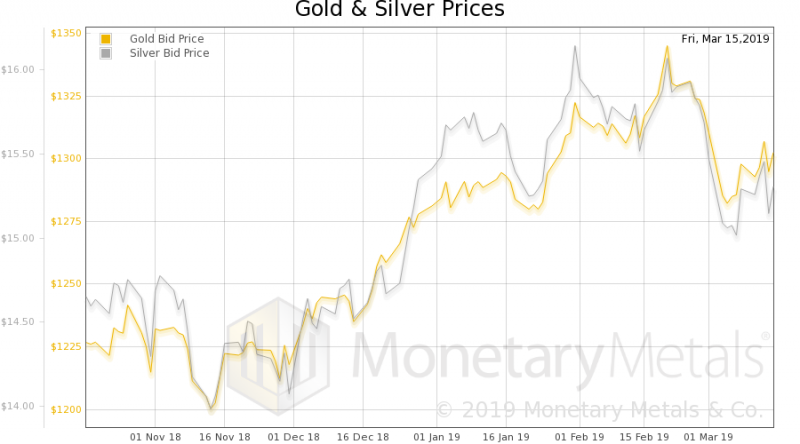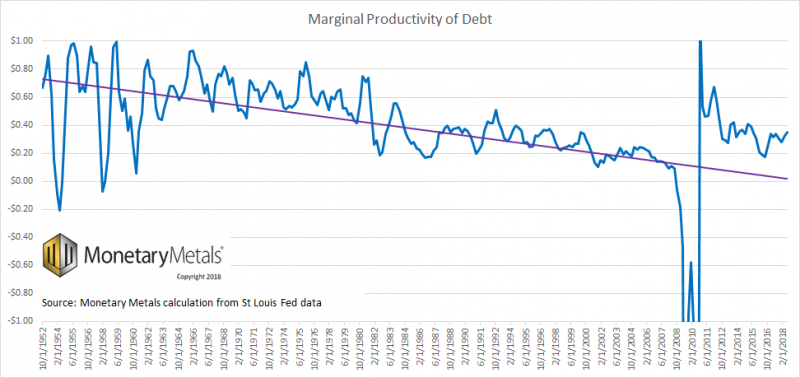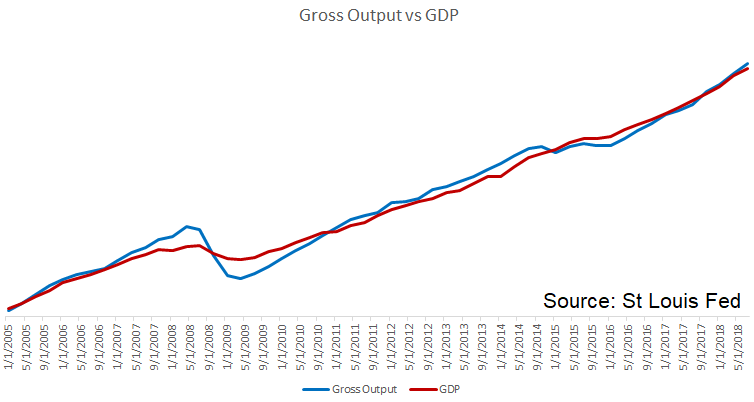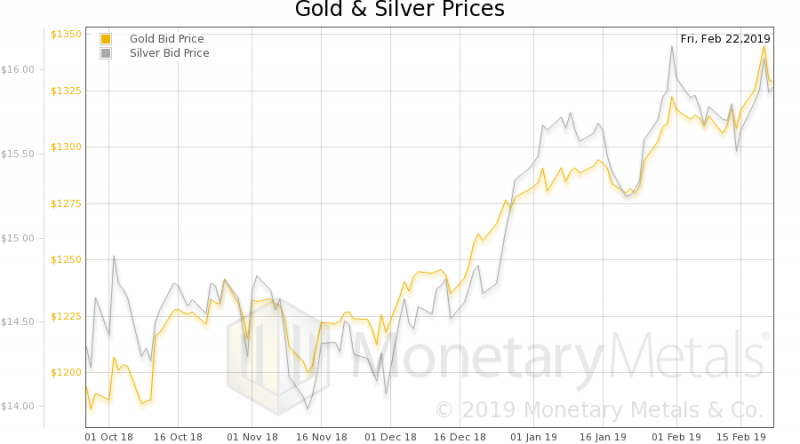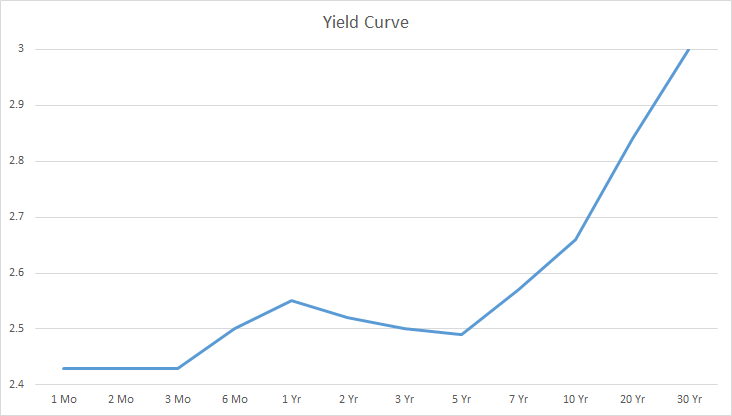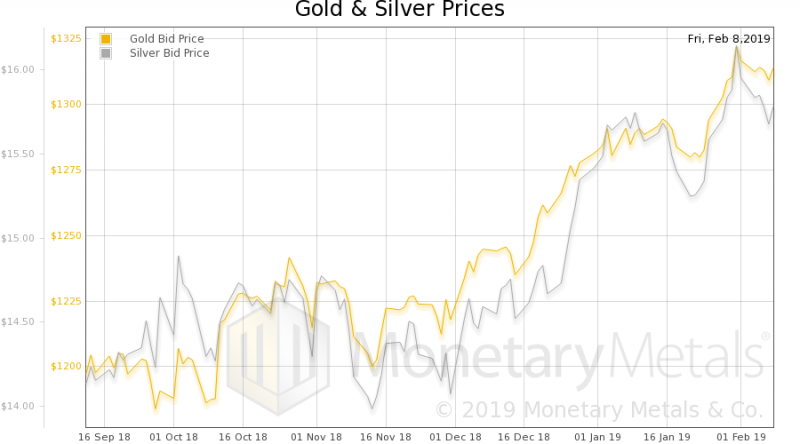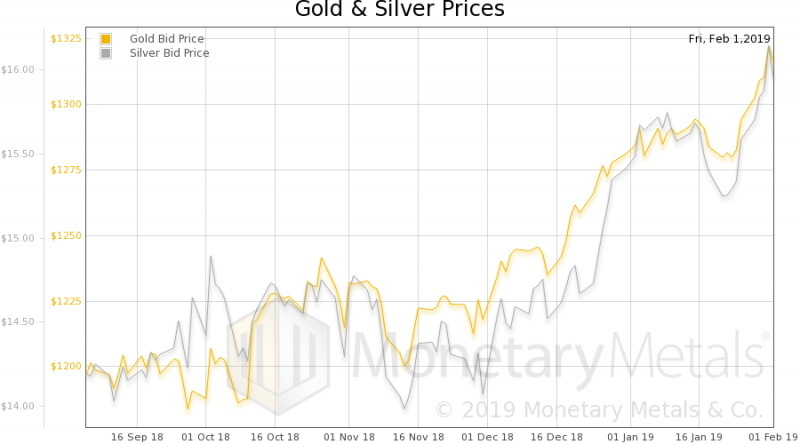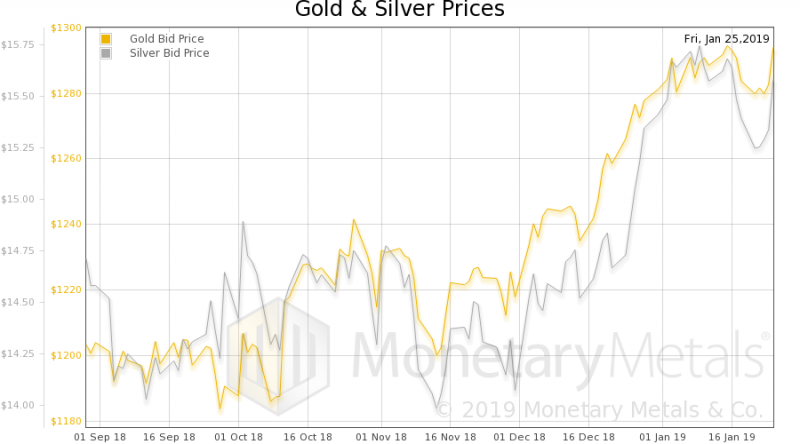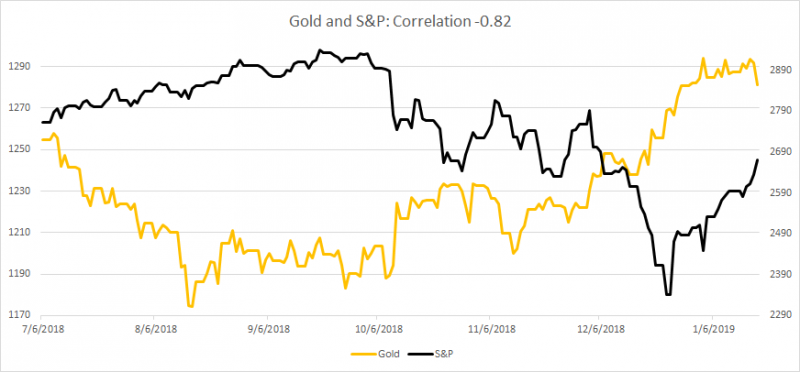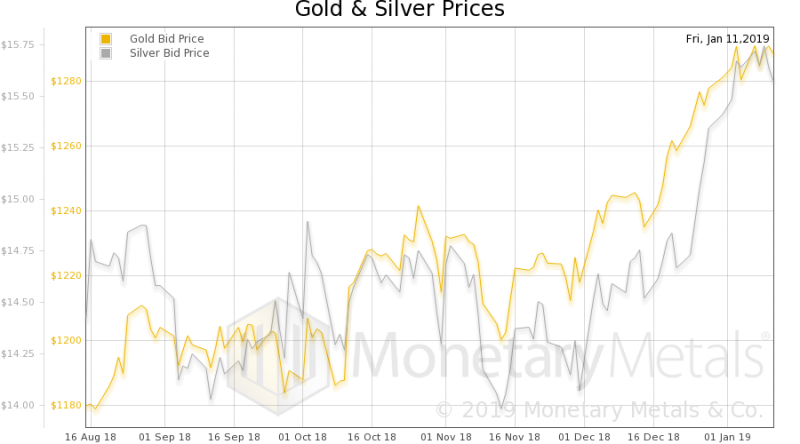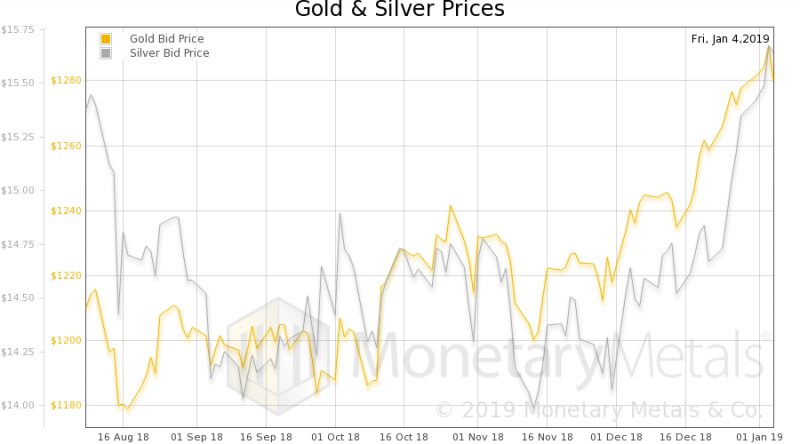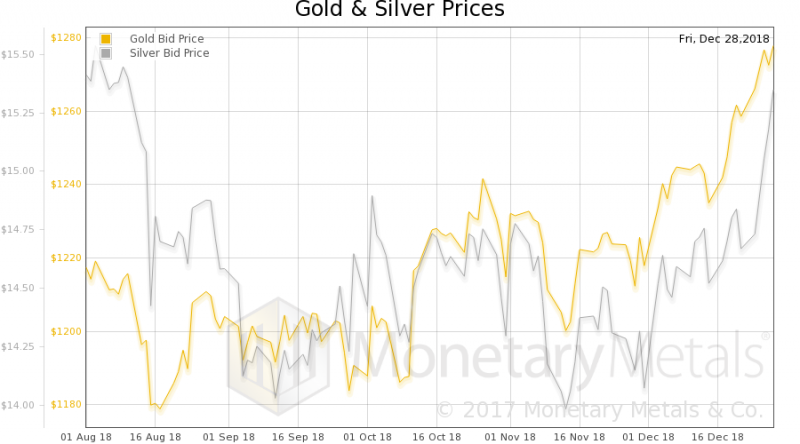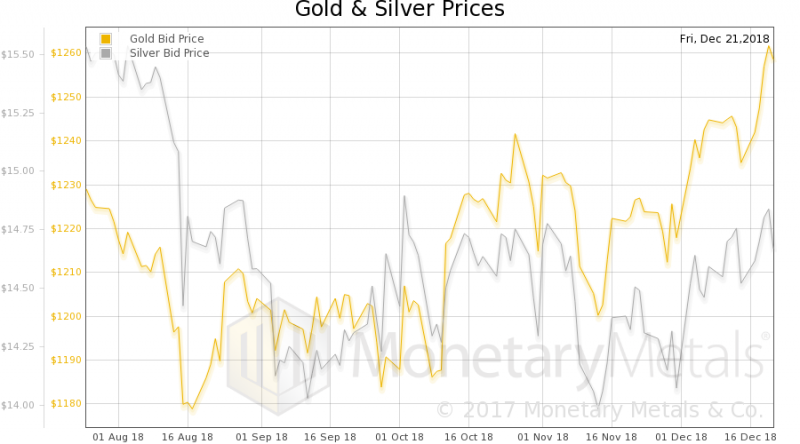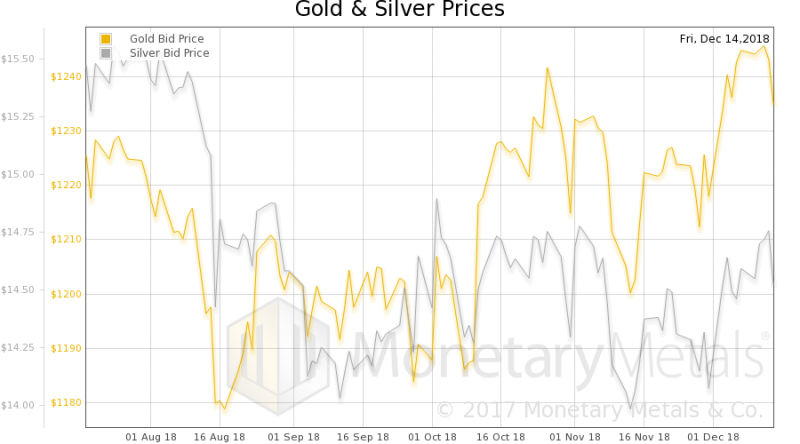Tag Archive: dollar price
Is Keith Weiner an Iconoclast? Report 28 Apr
We have a postscript to our ongoing discussion of inflation. A reader pointed out that Levis 501 jeans are $39.19 on Amazon (in Keith’s size—Amazon advertises prices as low as $16.31, which we assume is for either a very small size that uses less fabric, or an odd size that isn’t selling). Think of the enormity of this. The jeans were $50 in 1983. After 36 years of relentless inflation (or hot air about inflation), the price is down to $39.31. Down...
Read More »
Read More »
The Two Faces of Inflation, Report 22 Apr
We have a postscript to last week’s article. We said that rising prices today are not due to the dollar going down. It’s not that the dollar buys less. It’s that producers are forced to include more and more ingredients, which are not only useless to the consumer. But even invisible to the consumer. For example, dairy producers must provide ADA-compliant bathrooms to their employees.
Read More »
Read More »
New Inflation Indicator, Report 14 Apr
Last week, we wrote that regulations, taxes, environmental compliance, and fear of lawsuits forces companies to put useless ingredients into their products. We said: “For example, milk comes from the ingredients of: land, cows, ranch labor, dairy labor, dairy capital equipment, distribution labor, distribution capital, and consumable containers.”
Read More »
Read More »
What Causes Loss of Purchasing Power, Report 7 Apr
We have written much about the notion of inflation. We don’t want to rehash our many previous points, but to look at the idea of purchasing power from a new angle. Purchasing power is assumed to be intrinsic to the currency. We have said that the problem with the word inflation is that it treats two different phenomena as if they are the same.
Read More »
Read More »
Will Basel III Send Gold to the Moon, Report 2 Apr
A number of commentators have predicted that the rules of the Basel III bank regulations will cause gold to skyrocket (no, this article is not about our view that gold does not go up, that it’s the dollar going down, that the lighthouse does not go up, it’s the sinking ship going down in the storm).
Read More »
Read More »
On Board Keynes Express to Ruin, Report 24 Mar
Last week, I ranted about the problem with our monetary system and trajectory: falling interest rates is Keynes’ evil genius plan to destroy civilization. This week, I continue the theme—if in a more measured tone—addressing the ideas predominant among the groups who are most likely to fight against Keynes’ destructionism.
Read More »
Read More »
Keynes Was a Vicious Bastard, Report 17 Mar
My goal is to make you mad. Not at me (though I expect to ruffle a few feathers with this one). At the evil being wrought in the name of fighting inflation and maximizing employment. And at the aggressive indifference to this evil, exhibited by the capitalists, the gold bugs, and the otherwise-free-marketers.
Read More »
Read More »
The Duality of Money, Report 10 Mar
This is a pair of photographs taken by Keith Weiner, for a high school project. It seemed a fitting picture for the dual nature of money, the dual nature of wood both as logs to be consumed and dimensional lumber to be used to construct buildings.
Read More »
Read More »
Is Capital Creation Beating Capital Consumption? Report 3 Mar
We have written numerous articles about capital consumption. Our monetary system has a falling interest rate, which causes both capital churn and conversion of one party’s wealth into another’s income. It also has too-low interest, which encourages borrowing to consume (which, as everyone knows, adds to Gross Domestic Product—GDP).
Read More »
Read More »
Is Lending the Root of All Evil? Report 24 Feb
Ayn Rand famously defended money. In Atlas Shrugged, Francisco D’Anconia says: “So you think that money is the root of all evil? . . . Have you ever asked what is the root of money? Money is a tool of exchange, which can’t exist unless there are goods produced and men able to produce them.
Read More »
Read More »
Central Planning Is More than Just Friction, Report 17 February
It is easy to think of government interference into the economy like a kind of friction. If producers and traders were fully free, then they could improve our quality of life—with new technologies, better products, and lower prices—at a rate of X. But the more that the government does, the more it burdens them. So instead of X rate of progress, we get the same end result but 10% slower or 20% slower.
Read More »
Read More »
What They Don’t Want You to Know about Prices, Report 10 Feb
Last week, in part I of this essay, we discussed why a central planner cannot know the right interest rate. Central planner’s macroeconomic aggregate measures like GDP are blind to the problem of capital consumption, including especially capital consumption caused by the central plan itself.
Read More »
Read More »
Who Knows the Right Interest Rate, Report 3 Feb 2019
On January 6, we wrote the Surest Way to Overthrow Capitalism. We said: “In a future article, we will expand on why these two statements are true principles: (1) there is no way a central planner could set the right rate, even if he knew and (2) only a free market can know the right rate.” Today’s article is part I that promised article.
Read More »
Read More »
Modern Monetary Theory: A Cargo Cult, Report 20 Jan 2019
Newly elected Representative Alexandria Ocasio-Cortez recently said that Modern Monetary Theory (MMT) absolutely needed to be “a larger part of our conversation.” Her comment shines a spotlight on MMT. So what is it? According to Wikipedia, it is: “a macroeconomic theory that describes the currency as a public monopoly and unemployment as the evidence that a currency monopolist is restricting the supply of the financial assets needed to pay taxes...
Read More »
Read More »
The Dollar Works Just Fine, Report 20 Jan 2019
Last week, we joked that we don’t challenge beliefs. Here’s one that we want to challenge today: the dollar doesn’t work as a currency, because it’s losing value. Even the dollar’s proponents, admit it loses value. The Fed itself states that its mandate is price stability—which it admits means relentless two percent annual debasement (Orwell would be proud).
Read More »
Read More »
Rising Interest and Prices, Report 13 Jan 2019
For years, people blamed the global financial crisis on greed. Doesn’t this make you want to scream out, “what, were people not greedy in 2007 or 1997??” Greed utterly fails to explain the phenomenon. It merely serves to reinforce a previously-held belief.
Read More »
Read More »
Surest Way to Overthrow Capitalism, Report 6 Jan 2019
One of the most important problems in economics is: How do we know if an enterprise is creating or destroying wealth? The line between the two is objective, black and white. It should be clear that if business managers can’t tell the difference between a wealth-creating or wealth-destroying activity, then our whole society will be miserably poor.
Read More »
Read More »
Change is in the Air – Precious Metals Supply and Demand
Last week, the price of gold rose $25, and that of silver $0.60. Is it our turn? Is now when gold begins to go up? To outperform stocks? Something has changed in the supply and demand picture. Let’s look at that picture. But, first, here is the chart of the prices of gold and silver.
Read More »
Read More »
Are Stocks Overvalued, Report 24 Dec 2018
We could also have entitled this essay How to Measure Your Own Capital Destruction. But this headline would not have set expectations correctly. As always, when looking at the phenomenon of a credit-fueled boom, the destruction does not occur when prices crash. It occurs while they’re rising.
Read More »
Read More »
Why Do Investors Tolerate It, Report 17 Dec 2018
For the first time since we began publishing this Report, it is a day late. We apologize. Keith has just returned Saturday from two months on the road. Unlike the rest of the world, we define inflation as monetary counterfeiting. We do not put the emphasis on quantity (and the dollar is not money, it’s a currency). We focus on the quality. An awful lot of our monetary counterfeiting occurs to fuel consumption spending.
Read More »
Read More »
Receive a Daily Mail from this Blog
Live Currency Cross Rates
 On Swiss National Bank
On Swiss National Bank
-
SNB’s Chairman Schlegel: A few months of negative inflation wouldn’t be a problem
14 days ago -
SNB Sight Deposits: decreased by 3.6 billion francs compared to the previous week
2025-12-17 -
2025-07-31 – Interim results of the Swiss National Bank as at 30 June 2025
2025-07-31 -
SNB Brings Back Zero Percent Interest Rates
2025-06-26 -
Hold-up sur l’eau potable (2/2) : la supercherie de « l’hydrogène vert ». Par Vincent Held
2025-06-24
 Main SNB Background Info
Main SNB Background Info
-
SNB Sight Deposits: decreased by 3.6 billion francs compared to the previous week
2025-12-17 -
The Secret History Of The Banking Crisis
2017-08-14 -
SNB Balance Sheet Now Over 100 percent GDP
2016-08-29 -
The relationship between CHF and gold
2016-07-23 -
CHF Price Movements: Correlations between CHF and the German Economy
2016-07-22
Featured and recent
-
 Ruhestand ist dein Ende
Ruhestand ist dein Ende -
 Kilo Koala Silver Coin: Unbelievable Size (Watch This Coin!)
Kilo Koala Silver Coin: Unbelievable Size (Watch This Coin!) -
 Der wahre Grund? #politik #krieg #deutschland #europa #wirtschaft #russland #ukraine #putin #usa
Der wahre Grund? #politik #krieg #deutschland #europa #wirtschaft #russland #ukraine #putin #usa -
 Warum Lebensverlängerung nicht das eigentliche Problem löst.
Warum Lebensverlängerung nicht das eigentliche Problem löst. -
 Strategie-Fehler korrigieren: So überlebt dein Portfolio jede Krise
Strategie-Fehler korrigieren: So überlebt dein Portfolio jede Krise -
 Silber & Gold: Kommen jetzt neue Rekorde?
Silber & Gold: Kommen jetzt neue Rekorde? -
 Private Credit Funds Falling Out Of Favor
Private Credit Funds Falling Out Of Favor -
 Wichtige Morning News mit Oliver Klemm #537
Wichtige Morning News mit Oliver Klemm #537 -
 Quartalszahlen Crash – United Health Aktie 22% im Minus!
Quartalszahlen Crash – United Health Aktie 22% im Minus! -
 Covid ist nicht vorbei – die Folgen bleiben
Covid ist nicht vorbei – die Folgen bleiben
More from this category
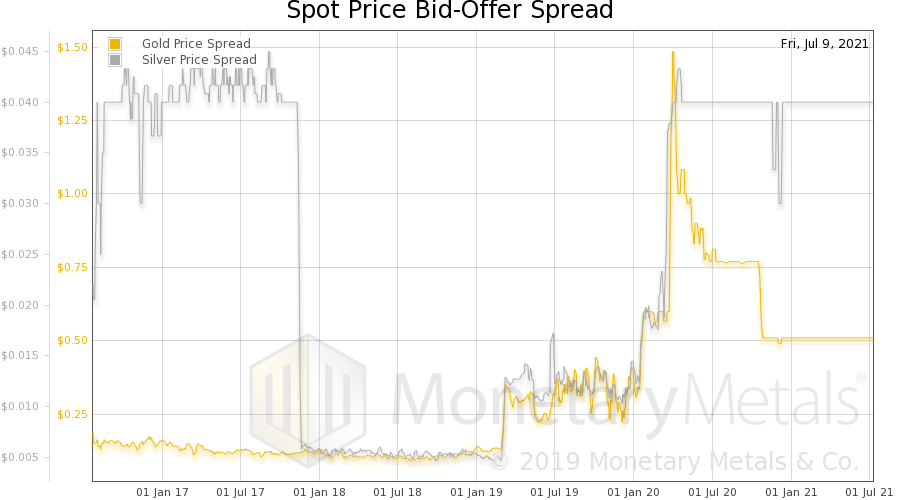 Basel III’s Effect on Gold and Silver
Basel III’s Effect on Gold and Silver13 Jul 2021
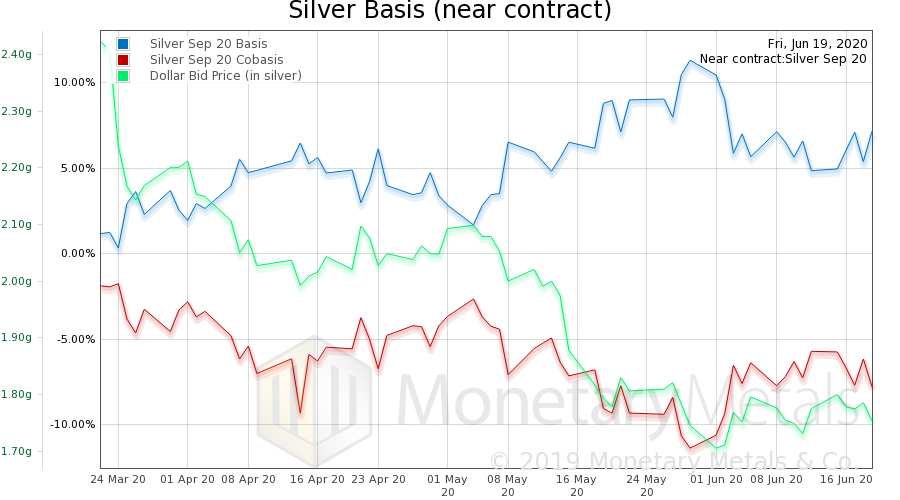 Defaults Are Coming, Market Report, 22 June
Defaults Are Coming, Market Report, 22 June23 Jun 2020
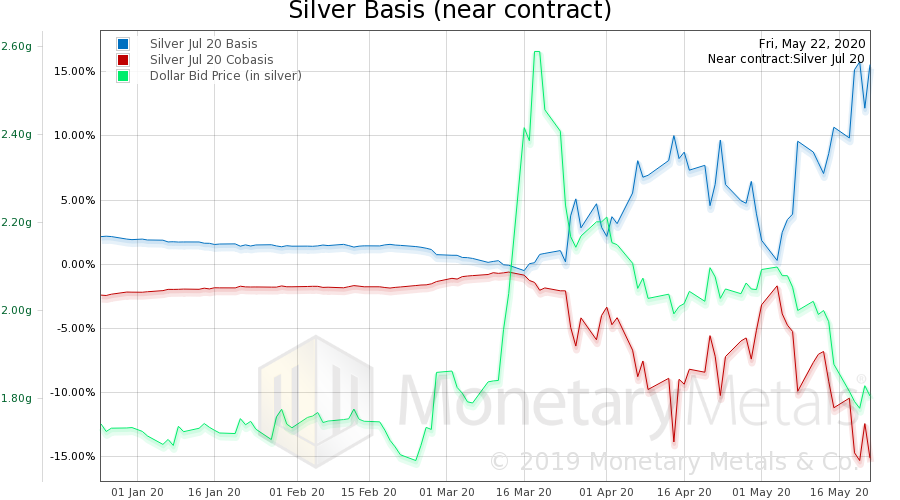 When Is a Capital Gain Capital Consumption? Market Report, 25 May
When Is a Capital Gain Capital Consumption? Market Report, 25 May26 May 2020
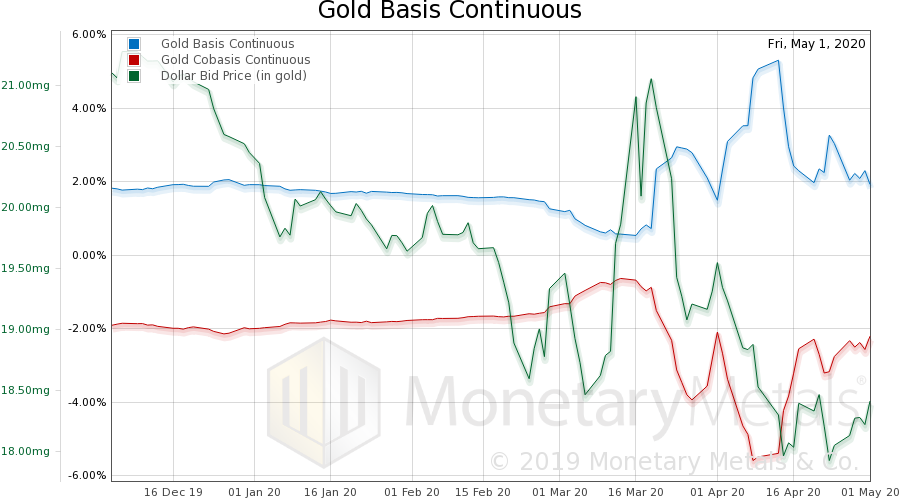 Gold and Silver Markets Start to Normalize, Report 4 May
Gold and Silver Markets Start to Normalize, Report 4 May5 May 2020
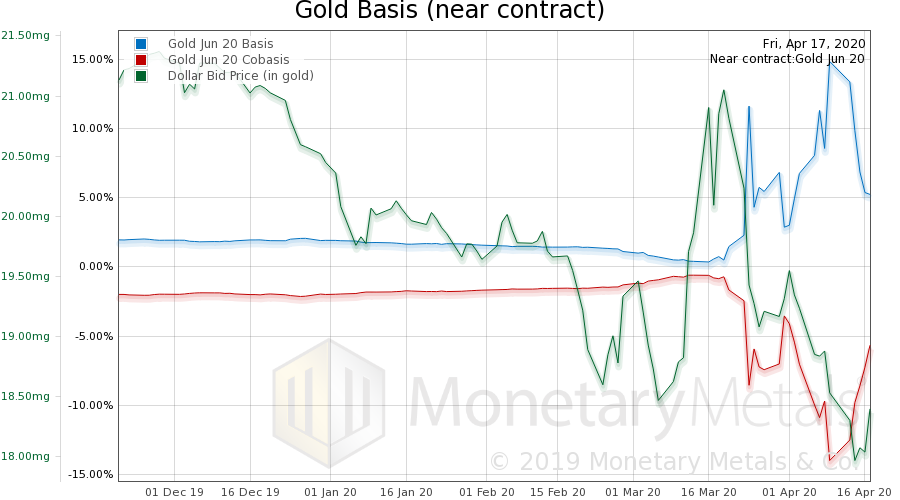 Crouching Silver, Hidden Oil Market Report 20 Apr
Crouching Silver, Hidden Oil Market Report 20 Apr21 Apr 2020
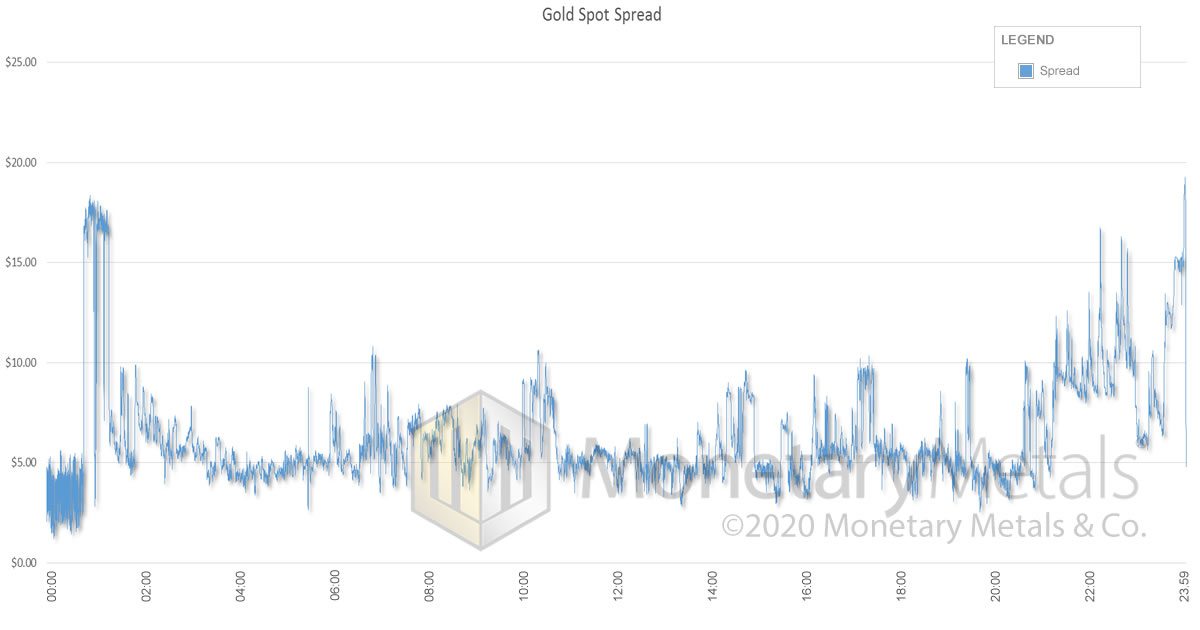 The Out Has Not Yet Begun to Fall, Market Report 31 March
The Out Has Not Yet Begun to Fall, Market Report 31 March2 Apr 2020
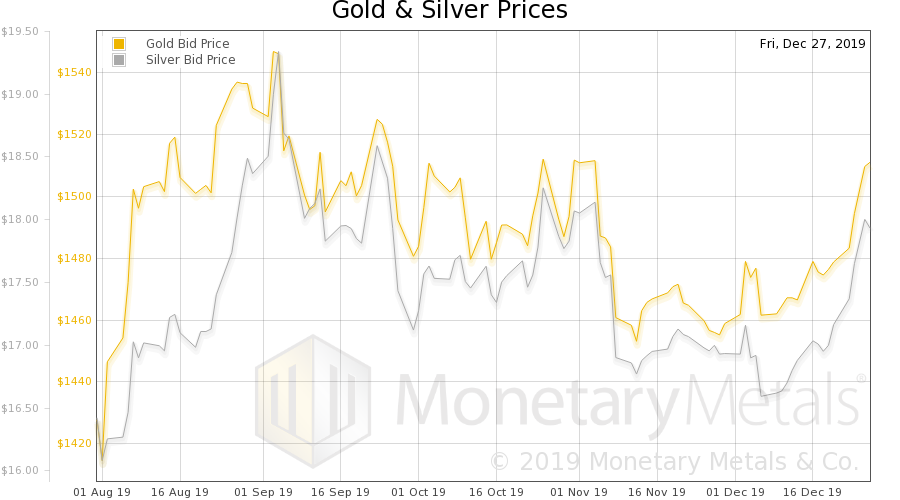 Wealth Consumption vs. Growth – Precious Metals Supply and Demand
Wealth Consumption vs. Growth – Precious Metals Supply and Demand3 Jan 2020
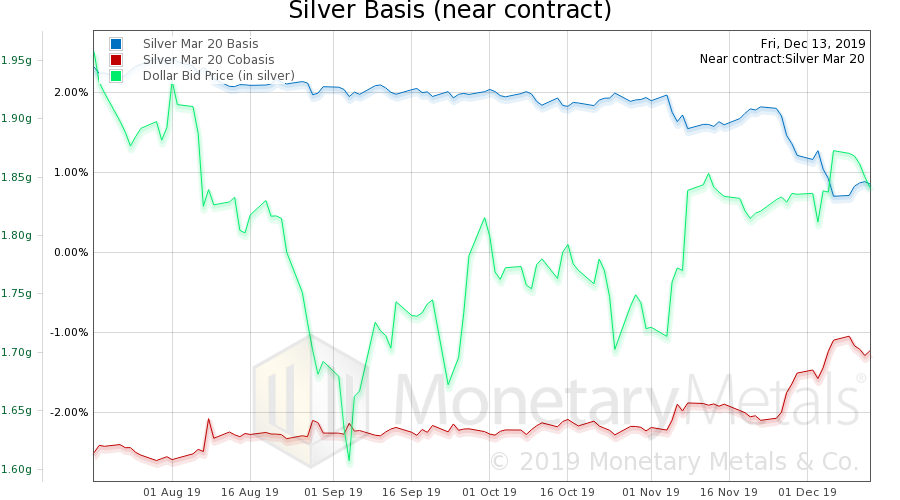 Open Letter to John Taft, Report 17 Dec
Open Letter to John Taft, Report 17 Dec18 Dec 2019
 The End of an Epoch, Report 8 Dec
The End of an Epoch, Report 8 Dec10 Dec 2019
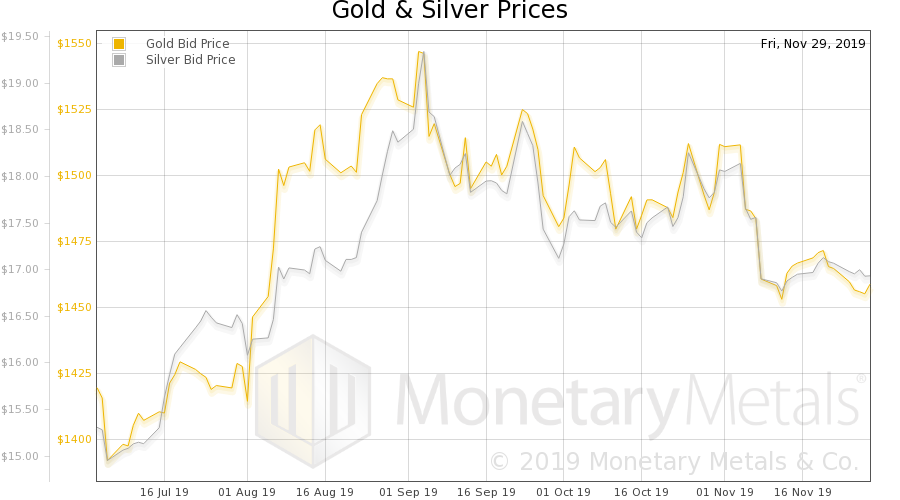 Money and Prices Are a Dynamic System, Report 1 Dec
Money and Prices Are a Dynamic System, Report 1 Dec3 Dec 2019
 Raising Rates to Fight Inflation, Report 24 Nov
Raising Rates to Fight Inflation, Report 24 Nov26 Nov 2019
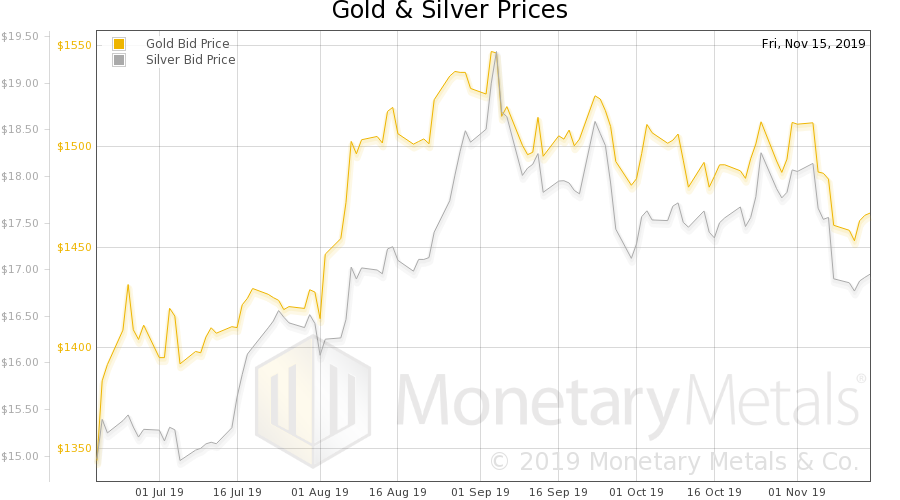 The Perversity of Negative Interest, Report 17 Nov
The Perversity of Negative Interest, Report 17 Nov18 Nov 2019
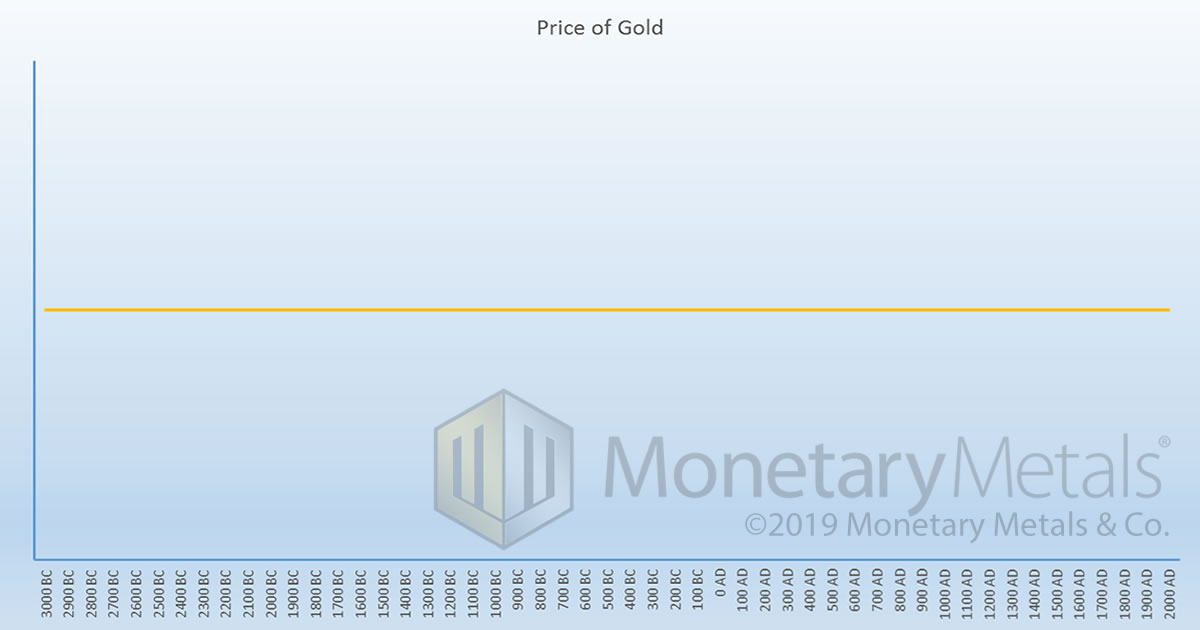 What’s the Price of Gold in the Gold Standard, Report 10 Nov
What’s the Price of Gold in the Gold Standard, Report 10 Nov12 Nov 2019
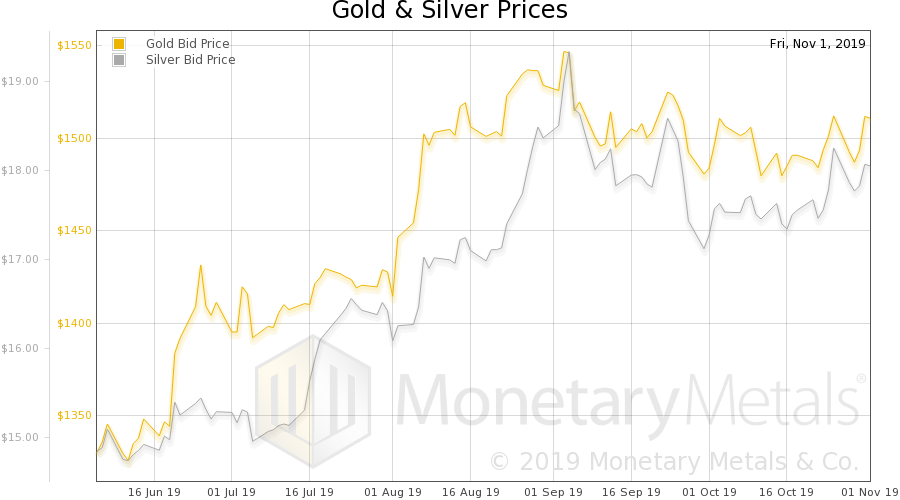 Targeting nGDP Targeting, Report 3 Nov
Targeting nGDP Targeting, Report 3 Nov5 Nov 2019
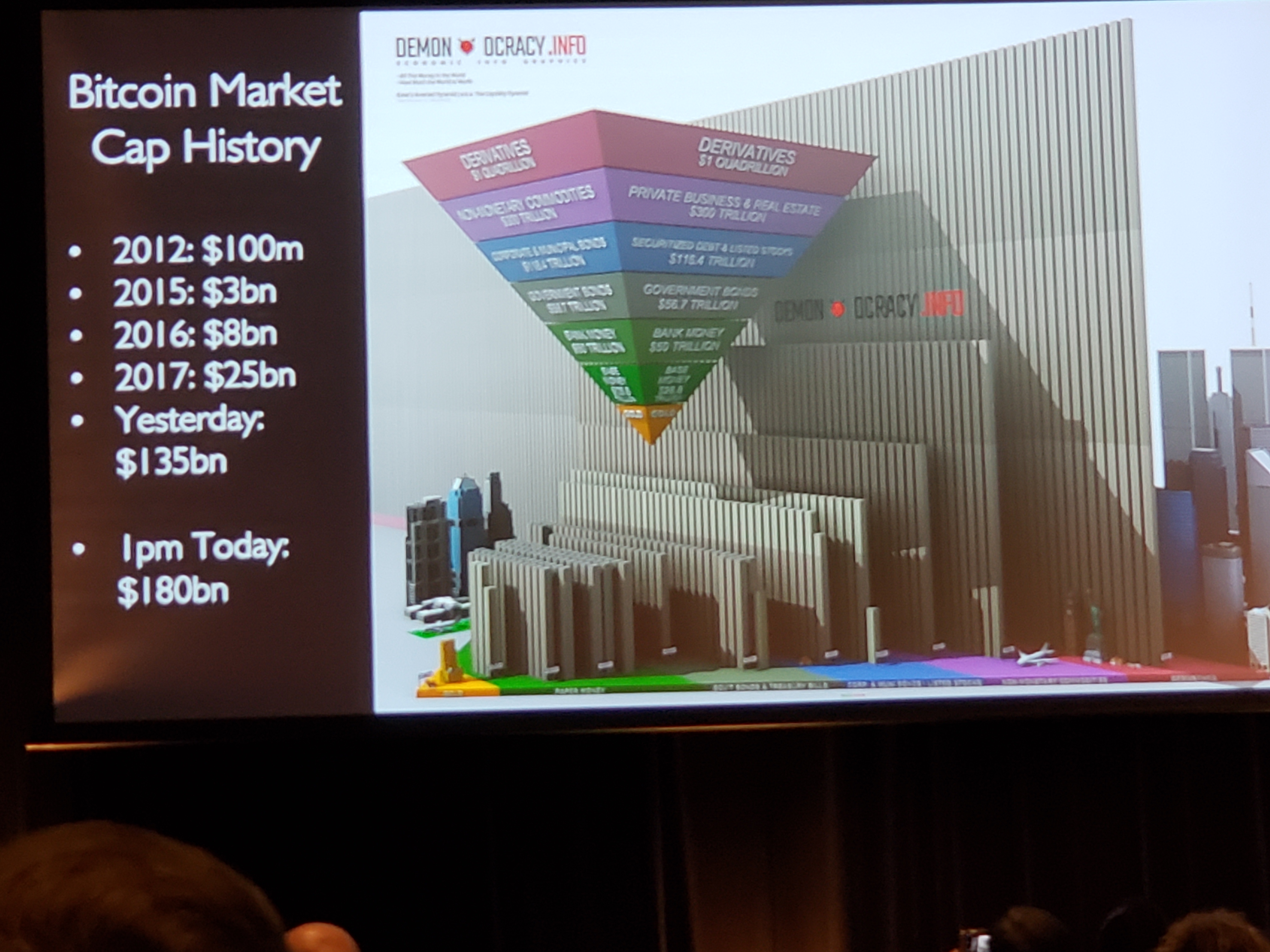 Bitcoin Myths, Report 27 Oct
Bitcoin Myths, Report 27 Oct28 Oct 2019
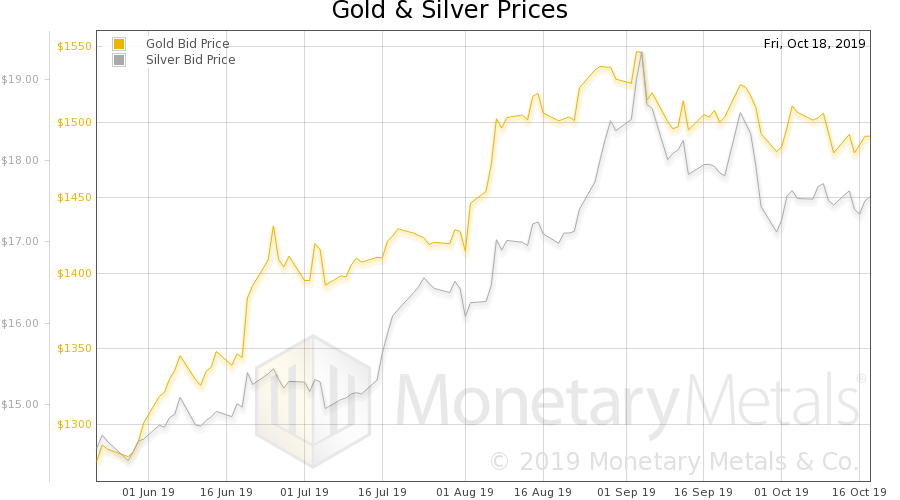 Wealth Accumulation Is Becoming Impossible, Report 20 Oct
Wealth Accumulation Is Becoming Impossible, Report 20 Oct22 Oct 2019
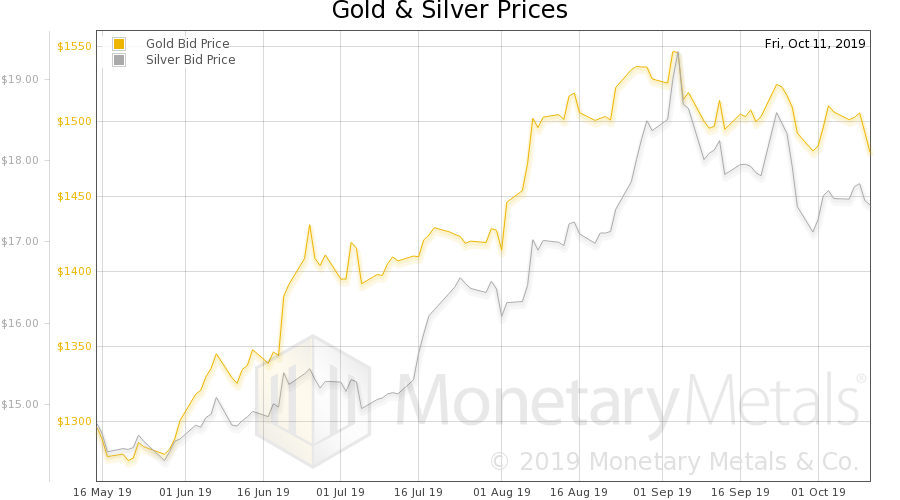 Motte and Bailey Fallacy, Report 13 Oct
Motte and Bailey Fallacy, Report 13 Oct15 Oct 2019
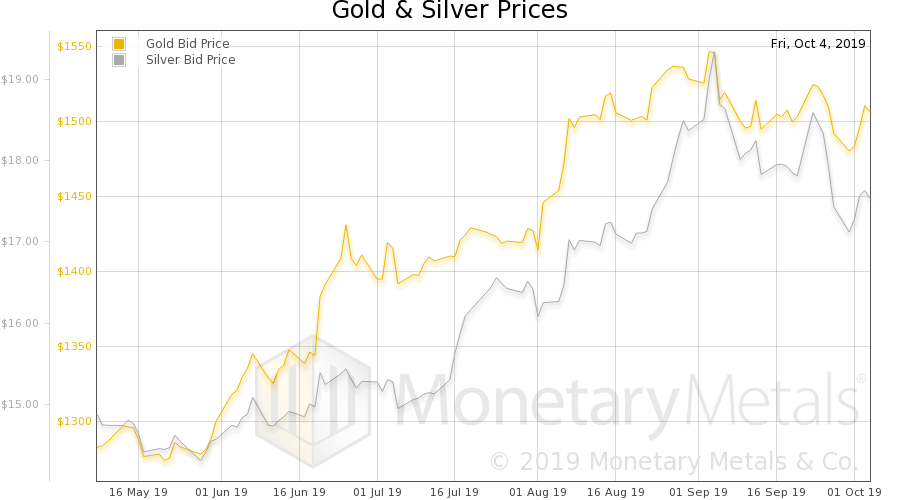 A Wealth Tax Consumes Capital, Report 6 Oct
A Wealth Tax Consumes Capital, Report 6 Oct7 Oct 2019
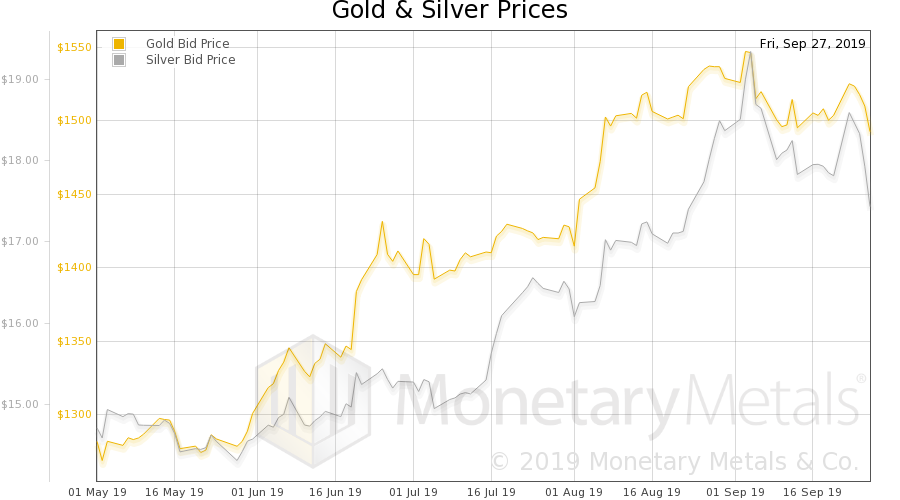 The Purchasing Power of Capital, Report 29 Sep
The Purchasing Power of Capital, Report 29 Sep1 Oct 2019
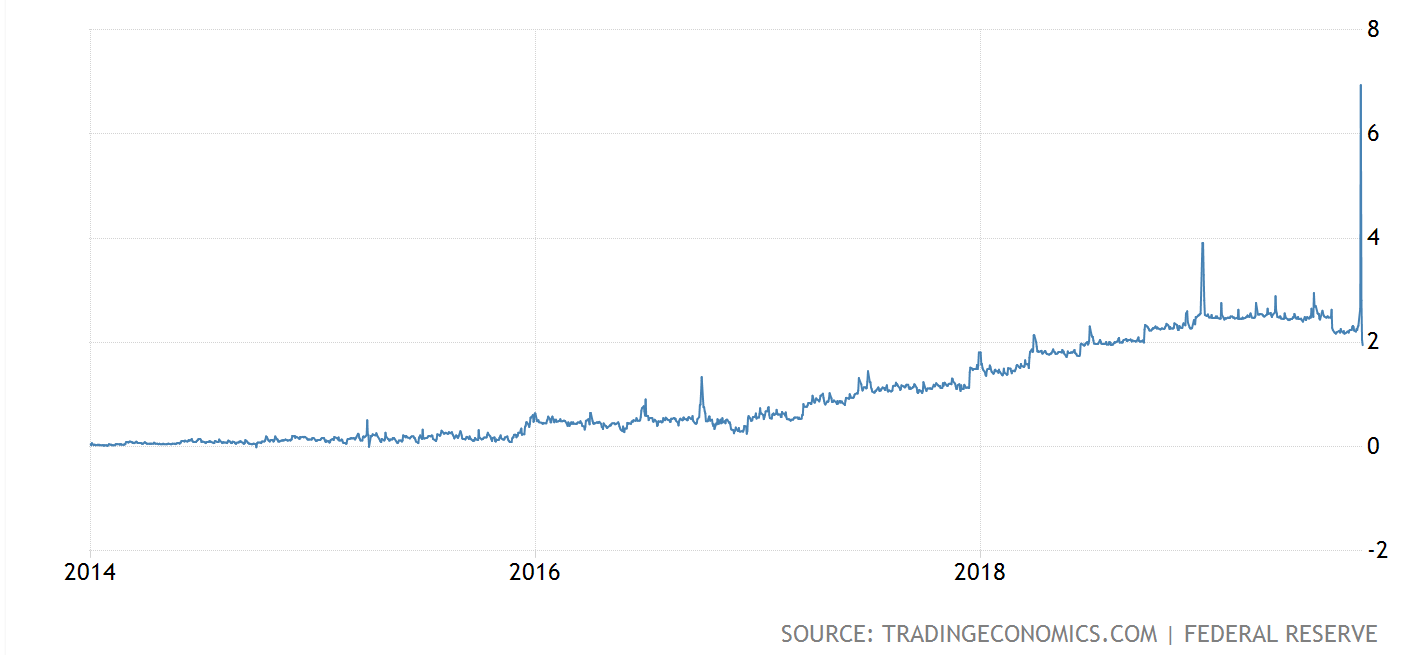 Treasury Bond Backwardation, Report 22 Sep
Treasury Bond Backwardation, Report 22 Sep24 Sep 2019









